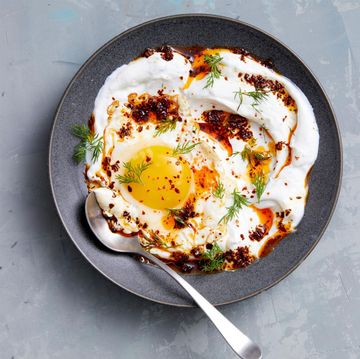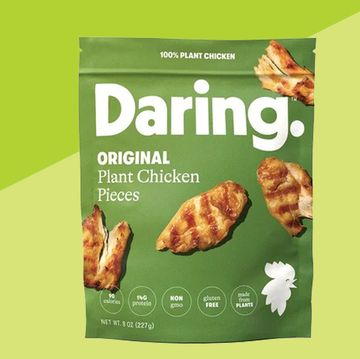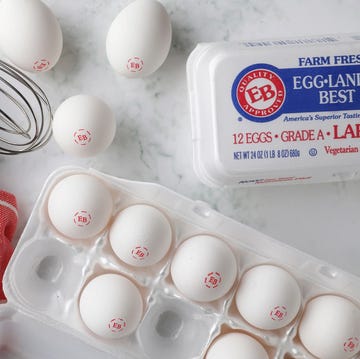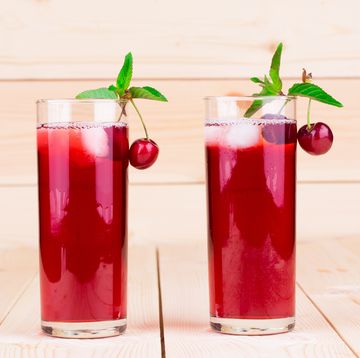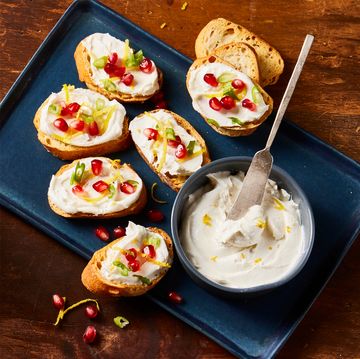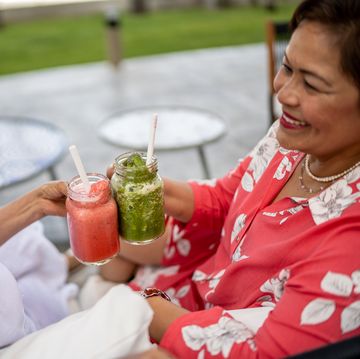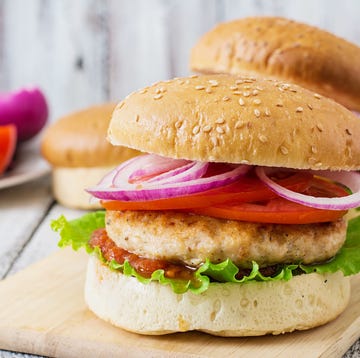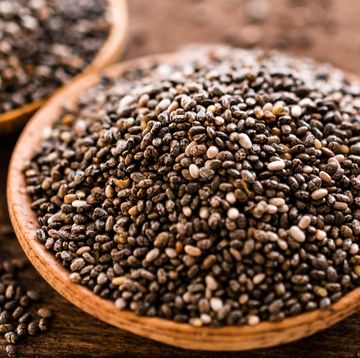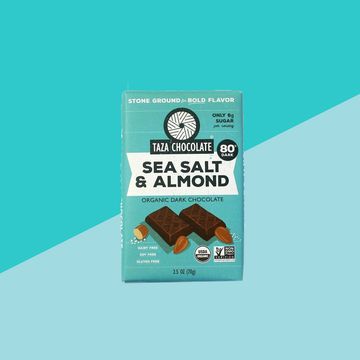- Actress Teri Hatcher recently posted an unedited bikini photo on Instagram. “Being in this 55-year-old body actually feels liberating,” she wrote in the caption.
- She revealed that she did an eight-week F45 challenge, which combines an anti-inflammatory diet with exercise.
- Dietitians explain how an anti-inflammatory diet works, and why it’s a healthy way to reach your health goals.
When former Desperate Housewives star Teri Hatcher shared unedited bikini photos of herself on Instagram, she was met with tons of positive responses. Now, she’s opening up about what led to that moment.
In her post, the 55-year-old actress revealed that she had undergone an eight-week F45 challenge, which combines an anti-inflammatory diet with exercise. “Exercise has become a source of well-being not a means to look good naked,” she wrote. “This is my truth and being in this 55-year-old body actually feels liberating. Here’s the thing. I’ve finally figured out how to be comfortable in my own skin. Maybe not every day but a lot of them. Age allows you to be clear on your purpose and cherish who and what you are grateful for.”
In a new interview on TODAY with Hoda & Jenna, she opened up about her experience. “I took the picture because it was at the end of an eight-week gym challenge that I had been doing that involved me being on an anti-inflammatory diet—and not to lose weight,” she said.
Hatcher explained that the focus of the challenge was to get stronger and improve her overall health, not to simply look great. “That’s what I was trying to pay attention to,” Hatcher said. “And just be happier—be in a better mental place.”
“I wanted to say to women, to everybody, you know, ‘Here’s who I am at 55. This is it. I’m not lying. I’m a strong woman. I’m a strong person,’” she added. And ultimately, she says her diet played a huge role in that.
What is an anti-inflammatory diet, again?
It’s exactly what it sounds like, explains Keri Gans, R.D.N., author of The Small Change Diet. In general, “an anti-inflammatory diet is a diet that promotes consumption of foods known to decrease inflammation in the body.”
Certain foods—like processed snacks and red meat, for example—are known to increase inflammation, which research has linked to diseases like cancer, heart disease, diabetes, arthritis, depression, and Alzheimer’s, says Jessica Cording, M.S., R.D., author of The Little Book of Game-Changers. By weeding out those foods and focusing on foods that have anti-inflammatory properties, the thought is that you’ll help lower your risk of developing these diseases.
“The anti-inflammatory diet, I think, is empowering—cutting out alcohol, or at least not making it your go-to reward at the end of every day, and finding something different,” Hatcher said. “It makes you not as depressed, not as lethargic, not as achy, all those things.”
What kinds of foods do you eat on an anti-inflammatory diet?
There’s no one way to eat an anti-inflammatory diet, so there’s a little wiggle room with this. But, in general, you want to “eat foods that have the building blocks of pro-anti-inflammatory cytokines, such as fish and shellfish high in omega-3 fatty acids and amino-acids,” says Gina Keatley, a certified dietitian-nutritionist practicing in New York City. But, she adds, “there is no guarantee that it will solve health problems or create weight loss.”
Other foods to eat include plenty of fruits and veggies, legumes, healthy fats like avocado, olive oil, nuts like almonds, dark chocolate, and herbs and spices, says Gans. “In other words, it’s very similar to the Mediterranean diet,” she says.
Some anti-inflammatory diets allow for alcohol (usually red wine), while others don’t, Cording says.
As for what to avoid? Anti-inflammatory diets generally recommend avoiding processed foods, white flour, sugar, red meats, trans fats, fried foods, and baked goods, Cording says. Some also recommend cutting out gluten, she says, but it’s not a universal rule.
Is an anti-inflammatory diet sustainable?
Unlike a lot of other fad diets, this one is actually pretty doable, says Gans, so there is no reason not to try it if you’re curious.
Cording also says she’s seen “a lot of success” with clients who have tried an anti-inflammatory diet. “I’ve found that it helps people become more mindful of what they’re eating,” she says. “Whenever you’re working toward a specific health goal, increasing your mindfulness around your eating habits can help you be more successful because you’re more tuned in to what you’re putting in your body.”
And for Hatcher, it’s really made all the difference. “When I say like I feel the best, you can’t kid yourself—like after menopause when you don’t have estrogen coursing through your body,” she told Hoda and Jenna. “You know, it’s no joke, the things that change. And I think more women need to be talking about that, so that we understand this sort of seven-year mysteriousness of hell that your body goes through.”
Like what you just read? You’ll love our magazine! Go here to subscribe. Don’t miss a thing by downloading Apple News here and following Prevention. Oh, and we’re on Instagram too.



